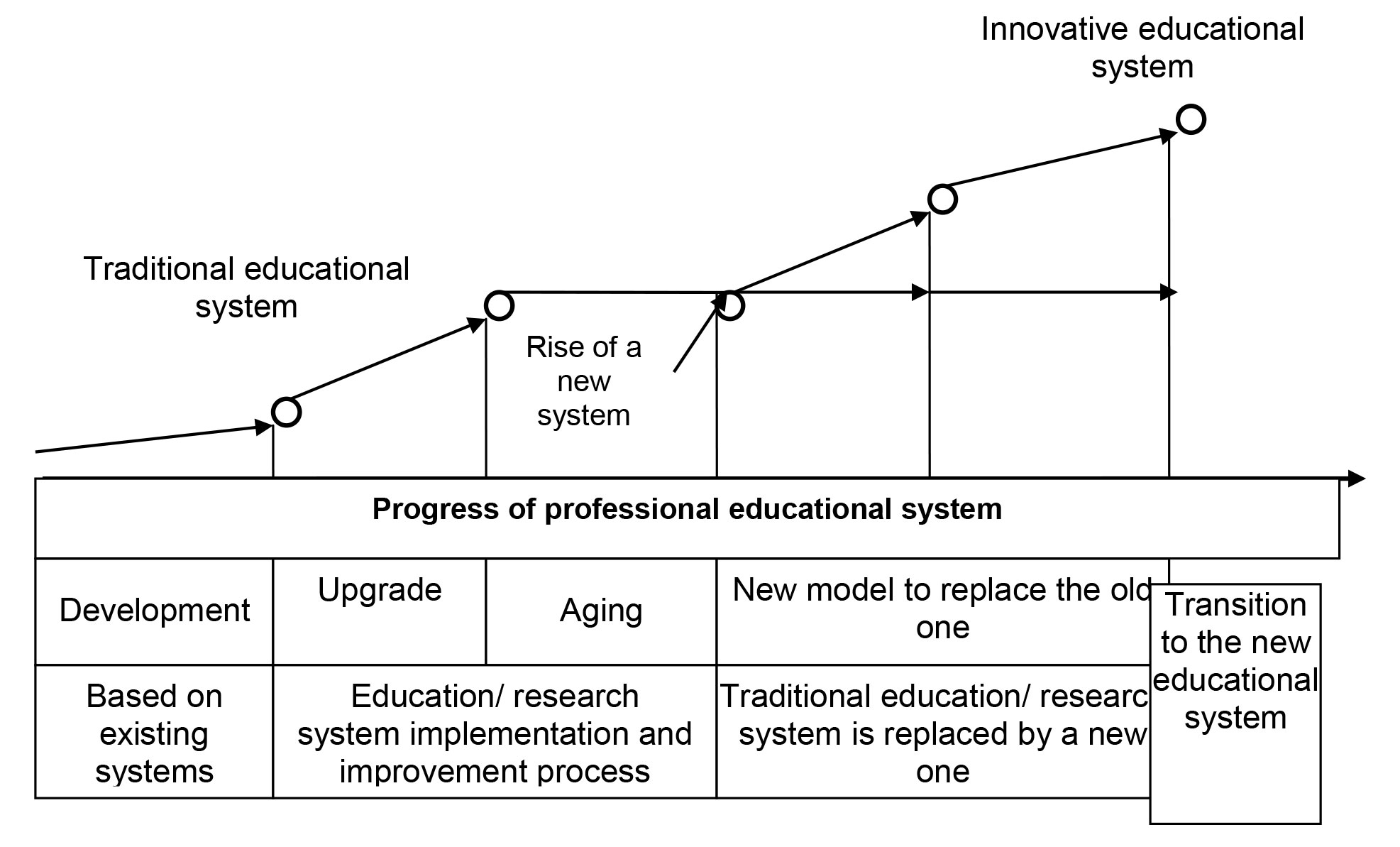Prognostic progress of academic physical culture of students in higher educational institutions of Russia
Фотографии:
ˑ:
PhD, Associate Professor G.V. Zarodnyuk1
PhD, Associate Professor N.V. Pakholkova1
D.B. Selyukin1
1St. Petersburg Mining University, St. Petersburg
Keywords: state, sport policies, process cycling, academic activity.
Background. Progress of culture and civilization on the whole in modern societies together with scientific knowledge accumulation may be viewed as both an indispensable function of society and its development prerequisite. Nowadays modern education and culture are ranked among the key development factors for society, government system, science and culture. Progress of a modern society also depends to a certain degree on the popular physical culture standards. Policies of the Russian government in the national physical education and sports sector are geared to advance the national physical culture and help build up the system of social and cultural values. The national academic system and its establishments are ranked high by the governmental policy implementation agencies for the reason that one of the missions of the academic educational system is to facilitate formation of a highly cultured personality [3].
In the context of modern challenges the national society is facing, the academic educational system mission in physical education and sports is to contribute to the formation of the high-quality human resource to meet the best internationally accepted professional, physical and health standards [1,2].
Objective of the study was to develop and offer a prognostic approach for the academic physical education system in Russia.
Study results and discussion. As things now stand in the modern society, new educational ideas and concepts are supported by the relevant educational models with the renewed visions of the educational and training policies and practices. The educational concepts with application of the newly offered prognostic approach include the following provisions:
• The prognostic education model shall be governed by the modern research methodology to effectively analyze every process; find the educational process logics and contradictions; and offer the ways and priorities for the educational system progress;
• Deliver the education material in the context of the latest achievements of the modern science and technology;
• Secure the new knowledge being organically supported by the everyday practices and life experiences;
• Give a high and persistent priority to the educational and developmental aspects of the learning process; and
• Ensure the learning process being designed on the modern theoretical basis, with zero tolerance to the drawbacks of the prognostic educational process.
The prognostic educational model is driven by the historically proven list of educational concepts including:
• Social sensitivity of and sound theoretical substantiations for the prognostic educational model;
• Practical focus of the prognostic educational model;
• Conscious creativity, activation and motivation of the trainees;
• Clearness of the prognostic educational process;
• Purposefulness, systemic and successive design of the prognostic educational process;
• High accessibility associated with high intensity of the prognostic educational process;
• Sound knowledge and skills in every component of the prognostic educational competency; and
• Teamwork associated with the individualized approach in the prognostic educational process.
A.V. Skotnikova offered the dynamic, stable and selective informational impact as the modern prognostic educational concept driven by the relevant emotional and volitional efforts on the distant development zones in their connection and interaction with the relevant nearest zones.
The social sensitivity and sound theoretical substantiation concept of the modern prognostic education implies the prognostic education being designed on the key fundamentals of the modern education science.
The practical focus of the prognostic educational model is needed to shape up the content of the educational process within the context of the well-known statement by famous commander A.V. Suvorov: “Train hard, fight easy; and train little, fight hard” [7].
The trainees’ conscious creativity, activation and motivation concept is based on the centuries-long experience including high patriotism and responsibility for the Motherland and people; and due understanding of the learning process objects and missions including the process goals, practical values and interests.
The prognostic education clearness concept implies that it is the direct perception of every studied object and phenomena that provides a starting point for its understanding and analysis [5].
It has become perfectly clear in the new millennium that the progress of the global community largely depends on the systemic and successful development of political, social, economic, legal, research, engineering, educational, cultural, sporting and informational domains with due contributions from the interdisciplinary sciences and economics of prognostic and systemic theoretical knowledge.
Modern development trends in the academic educational system urge the national universities make a special emphasis on the prognostic studies to advance their development strategies – both short- and long-run ones [4, 5].
Progress of the modern professional academic educational system in the global context is cyclic, as demonstrated in Figure 1 hereunder.

Figure 1. Cyclic design of the professional academic educational system
Cycles in the professional academic educational system evolution imply the following historical and logical stages: new professional educational system development and progress stage; upgrade stage of the existing system to remove its problems and contradictions; traditional professional academic educational system aging stage; development of a new professional academic educational system to replace outdated theoretical, practical, research and technological basics; and stage of transition to the new professional academic educational system designed to meet the modern social and governmental requirements.
Therefore, the professional academic educational system may be at any evolutionary stage (including initial, progress, peaking, stagnation, degradation and extinction stages) as dictated by a variety of factors, conditions and aspects.
At the system progress stages, the process logics may be different (linear, exponential etc.), albeit the general trend is always the same as it implies the growth of motivations, creativity and professional mastery in a variety of the process conditions under influences of different factors and individual specifics.
It should be noted that the ongoing studies to find the optimal facilitating conditions for the cognitive activity have resulted in the problems-driven educational concept. The process was encouraged both by the progress of the modern education theory and practical research and learning process models that facilitated the modern psychological theories being designed for the educational and learning processes. It is commonly acknowledged today that the educational activity shall be designed on a creative basis with a special emphasis on the processes to encourage the specific thinking models – designed (as provided by S.L. Rubinstein) as required by the problems-specific situations.
At this juncture we may formulate a few specific findings to encourage progress in this domain. In the available psychological and educational science literature authors try to summarize the findings to produce the relevant social-engineering and pragmatic concepts to formulate the logics of people’s behaviour using relevant empirical toolkits. The problem with these attempts is that they are not inclusive enough and poorly supported by theoretical grounds and, hence, give little means to set limits for the formulated logics and rules.
One of the key logics of the prognostic educational process is that its success depends on how well the students are engaged in the prognostic activity that shall be highly active, productive, personally and professionally developing, cognitive and exploring. As far as the modern proactive education viewed as the cooperative prognostic activity is concerned, it is only natural that it is driven by the relevant social interactions facilitating the prognostic qualities and personality development process via relevant common goals, values and ways to success in the values-driven process. It is only via the social relationship and cooperation system that the individual transformation may be achieved.
Conclusion. The prognostic educational process is essentially designed to facilitate both intellectual and personality transformations, with the harmonized prognostic learning, development and training process of the future professional specialist viewed as a natural product of the educational process. However, the prognostic qualities cultivation and development process may vary depending on the educational process model, specific personality shaping impacts and actual cooperation of the educator with students.
References
- Ashmarin B.A. Teoriya i metodika pedagogicheskikh issledovaniy v fizicheskom vospitanii [Theory and methodology of pedagogical research in physical education]. Moscow: Fizkultura i sport publ., 1987, 222 p.
- Davydov V.V. Teoriya razvivayuschego obucheniya [Theory of developmental learning]. Moscow, 1996.
- Kazanin O.I., Drebenshtedt K. Gornoe obrazovanie v XXI veke: globalnye vyzovy i perspektiva [Mining in the XXI century: global challenges and prospects]. Zapiski Gornogo instituta, 2017, vol. 225, pp. 369-375).
- Kalakov N.I., Nemova E.N. Metodologicheskie osobennosti formirovaniya polikulturnykh tsennostey lichnosti kursantov obrazovatelnykh organizatsiy vysshego obrazovaniya silovykh struktur na dukhovno-nravstvennoy osnove [Methodological features of cultivation of multicultural values in cadets of higher educational organizations of power structures on spiritual and moral basis]. Moscow: RSUPESYT publ.; Ulyanovsk, 2015, 122 p.
- Kalakov N.I., Nemova E.N. Metodologiya razvitiya prognosticheskogo obrazovaniya i nauki v Rossii v tselyakh obespecheniya bezopasnosti strany [Methodology for development of prognostic education and science in Russia to ensure national security]. Moscow: RSUPESYT publ., 2015, 634 p.
- Neverkovich S.D. Igrovye metody podgotovki kadrov [Game training methods]. Moscow: Vysshaya shkola publ., 1995, 206 p.
- Skotnikova A.V. Metodologicheskie osobennosti razvitiya fizicheskoy kultury i sporta v sisteme prognosticheskogo obrazovaniya[Methodological features of development of physical education and sports in predictive educational system]. Moscow: RSUPESYT publ., 2015.
Corresponding author: m.a.08@mail.ru
Abstract
Objective of the study was to develop and offer a prognostic approach for the academic physical education system in Russia. The authors believe that the prognostic academic physical education shall be designed with top priority given to the determined, effective and professionally focused contribution of students to the cognitive and research processes. As far as the modern proactive education viewed as the cooperative prognostic activity is concerned, it is only natural that it is driven by the relevant social interactions facilitating the prognostic qualities and personality development process via relevant common goals, values and ways to success in the values-driven process. It is only via the system of social relationship and cooperation that the individual transformation may be achieved.




 Журнал "THEORY AND PRACTICE
Журнал "THEORY AND PRACTICE